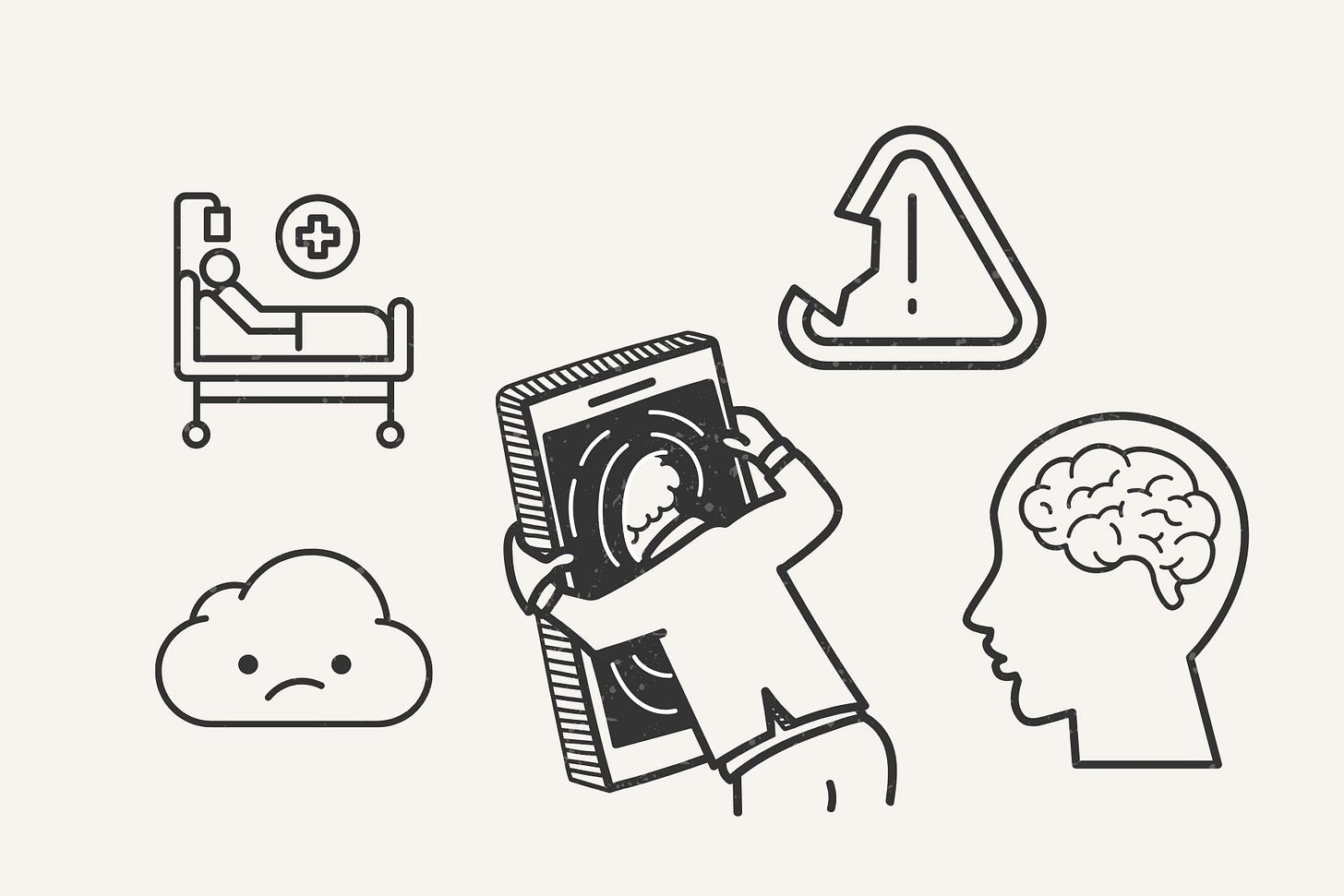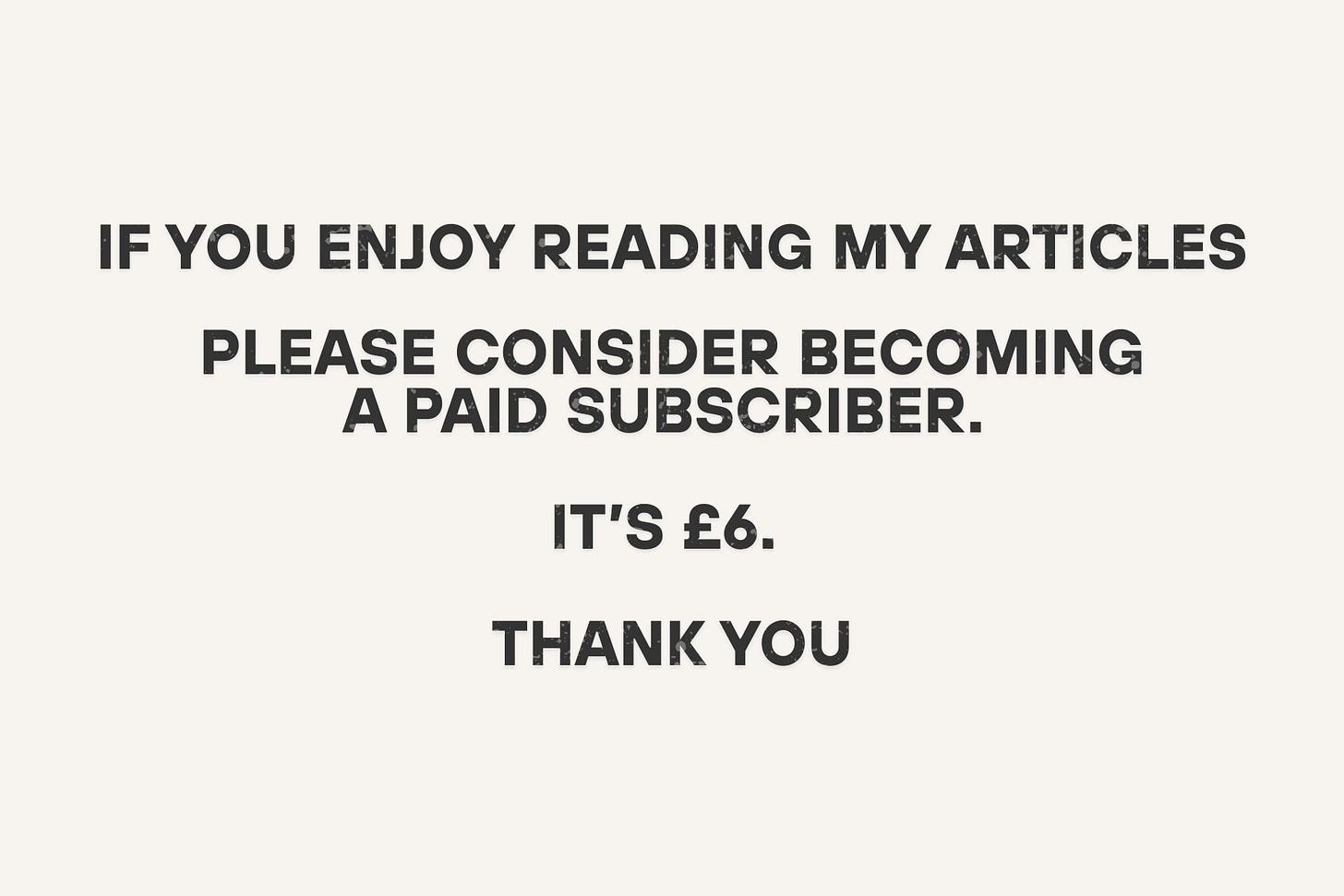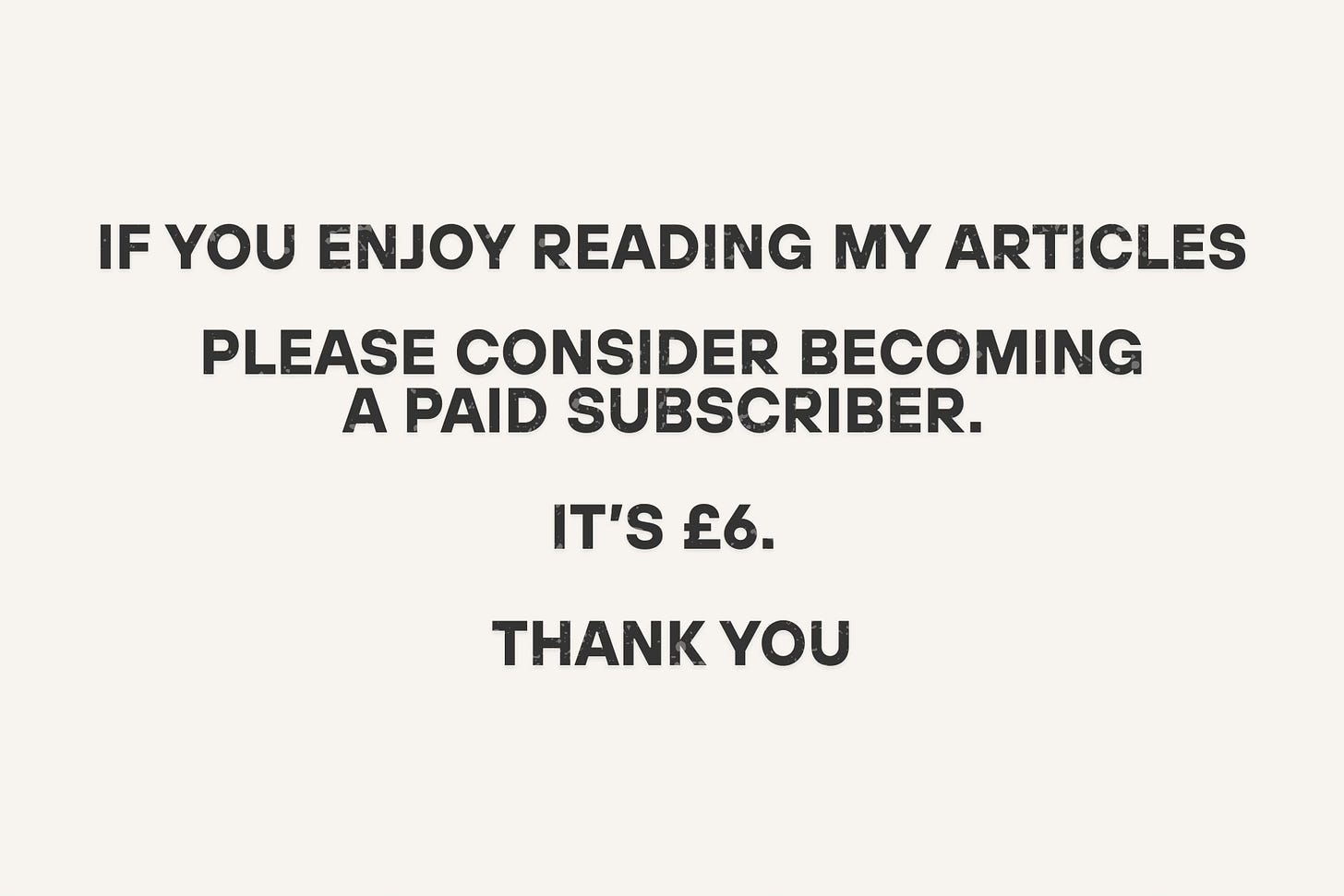Dear Reader, This Is a Warning. We Have Surrendered Depth for Dopamine
The dehumanising effects of the age of instant gratification.
Dear Reader,
Something is slipping away. Not all at once, not with sirens or headlines, but in tiny moments. In the scrolling. In the tapping. In the reflexive checking of phones when we are bored or anxious or just quietly existing. We do not notice it happening, not really. But it is there. A slow erosion of self. A quiet theft of something human, something real.
You may feel it already. That constant buzz in your head. The shrinking attention span. The sense that you are always behind, always consuming, always performing and never quite sure who you are performing for.
That feeling is not imagined. It is the result of something bigger, something deeper. And it is time we talked about it.
We live in an age where nothing is allowed to take time. Not conversations. Not creativity. Not even grief. Everything must be fast. Everything must be shareable. Everything must be packaged for someone else to consume. We have surrendered depth for dopamine. We reach for our screens like lifeboats, when in truth, they are the storm. A curated digital world filled with manufactured perfection, pixel-filtered identities, and the insatiable thirst for validation. We do not sit with our thoughts anymore. We drown them in notifications.
The consequences are not just a few wasted hours. They are existential. We no longer live our lives. We brand them. We no longer express ourselves. We curate ourselves. The line between authentic and algorithm-approved has blurred to the point of invisibility. Ask yourself this. When was the last time you did something that no one knew about. That was not shared or seen or snapped. When was the last time you were allowed to be fully and unapologetically human. Messy. Inconsistent. Evolving. Without feeling like you needed to translate that humanity into a caption.
The younger generation. Gen Z. They are the first to grow up entirely inside this digital aquarium. And though they may be fluent in the language of likes and loops and viral audios, they are starving for meaning. For real creativity. For slowness. For silence. We are not mocking them. We are mourning what they are being robbed of. And what we are all complicit in losing.
Real creativity is slow. It is awkward and uncomfortable. It requires space. Space to be wrong. To fail. To explore without an audience. But we have designed a world that makes this kind of creativity almost impossible. If it cannot be shared, it is seen as pointless. If it does not get traction, it is discarded. If it does not look good on a grid, it does not get made. And so we consume instead. Relentlessly. We swipe past masterpieces. We forget brilliance in seconds. We devour more and more and create less and less.
Creativity is not a luxury. It is not something for artists alone. It is a core part of what makes us human. And it is disappearing. Let us be honest. We are more visible than ever and more alone than we have ever been. We know what everyone is doing but we do not feel known. We share ourselves constantly and yet rarely feel truly seen. Gen Z, born into the architecture of attention-hacking, is not addicted by accident. They are exhausted. Not because they are doing nothing. But because they are performing everything.
We given up an ocean of thought for a puddle of pleasure
Every conversation is content. Every feeling is filtered. Every mistake is potentially career-ending. We do not envy them. We fear for them. Because a generation that is never allowed to be private. Never allowed to unplug. Never allowed to be unfinished. Will eventually forget how. We are not built for the endless noise. The performance. The illusion of constant relevance. We are not built to be measured in likes. To compete with algorithms. To live at the pace of virality.
Our brains need boredom. Our souls need silence. Our creativity needs time. And so do our relationships, our values, our stories. But everything we hold sacred is being flattened into content. Measured. Scored. Monetised. And if we are not careful, we will begin to believe that is all we are worth. This letter is not a rejection of technology. It is not an anti-Gen Z manifesto. It is a warning. A gentle, heartfelt siren in the fog of notifications saying. Do not forget who you are when no one is watching.
Unplug. Not forever. Just long enough to hear your own thoughts again. Let yourself be bored. Let yourself make something terrible and beautiful and private. Let yourself exist offline. Create something without posting it. Go for a walk without headphones. Call someone instead of messaging them. Let your identity be more than your bio. Most importantly. Allow yourself to be unfinished.
We must teach our children and remind ourselves that the best things in life are slow. That they require patience. That they cannot be filtered. That they are often messy and hard and invisible to everyone but ourselves. The future will not be determined by the speed of our swipes. But by the depth of our focus. It will not be saved by viral campaigns. But by quiet and deliberate choices. It will not be shaped by algorithms. But by the people willing to unplug long enough to remember what it means to be.
Something is slipping away and we are pretending not to notice. Every time we choose the screen over silence. Every time we scroll instead of speak. Every time we trade presence for performance. We are feeding the machine and starving our souls. The culture we have built is one of constant visibility and yet it has made us disappear. We vanish into our profiles. Our posts. Our projections. And in doing so, we lose the raw and unedited parts of ourselves. The parts that laugh too loud. That cry for no reason. That sit quietly in a room and stare at the sky. The parts that cannot be monetised.
We forget that not everything has to be seen to be valuable. That joy does not need to be shared to be real. That beauty exists even when no one is watching. We forget how to be without needing to prove that we are. I am not writing this from a mountaintop. I am guilty too. I have chased likes. I have curated my life. I have checked my phone more times than I have prayed or meditated or watched the sun set. But I am trying. And that is all this letter asks of you.
Try. Try to remember life before everything was performance. Try to make space for boredom. For silence. For unproductive hours. Try to be a person instead of a profile. Try to be present instead of perfect. It is not too late. Not yet. But if we continue like this. If we keep worshipping at the altar of instant gratification. If we keep letting algorithms decide what we love. If we keep turning our souls into scrollable segments. We will forget how to be human.
And once that is lost, no amount of engagement will bring it back. Choose humanity. Choose slowness. Choose imperfection. Choose a future worth living in. Before we forget that we ever had the choice at all.
With urgency and hope,
Written by a fellow human calling for action (who’s also currently looking at a screen).
That means the average person in the UK and US spends, 93 days per year staring at a screen - that means we only really have 9 months in a year.
Recent studies have highlighted the substantial amount of time individuals in both the United Kingdom and the United States spend in front of screens each week.Advanced Television
United Kingdom:
According to a study by Lenstore, the average Briton spends approximately 13 hours and 2 minutes daily on screens, encompassing activities such as using computers, tablets, phones, televisions, and gaming consoles. This equates to about 91 hours and 14 minutes per week, meaning that individuals in the UK spend around 75% of their waking hours engaged with screens. The study also noted that younger adults, particularly those aged 18–24, spend the most time on screens, with 77% of their waking hours dedicated to screen use. Lenstore
United States:
In the United States, data from Backlinko indicates that the average screen time on internet-connected devices is approximately 7 hours and 3 minutes per day, totaling about 49 hours and 21 minutes per week. This figure encompasses various activities, including browsing the internet, using social media, streaming content, and other digital engagements.The study also revealed that younger age groups, particularly those aged 16–24, tend to have higher screen times, with females in this group averaging 7 hours and 32 minutes daily. Backlinko
These statistics underscore the pervasive presence of screens in daily life and highlight the importance of mindful engagement with digital devices to maintain overall well-being.
I have no doubt there will be significant ramifications to future generations on the scale of the current climate crisis. We’ll keep ignoring the signs, and it’ll be too late.
Take action. Own your time.







